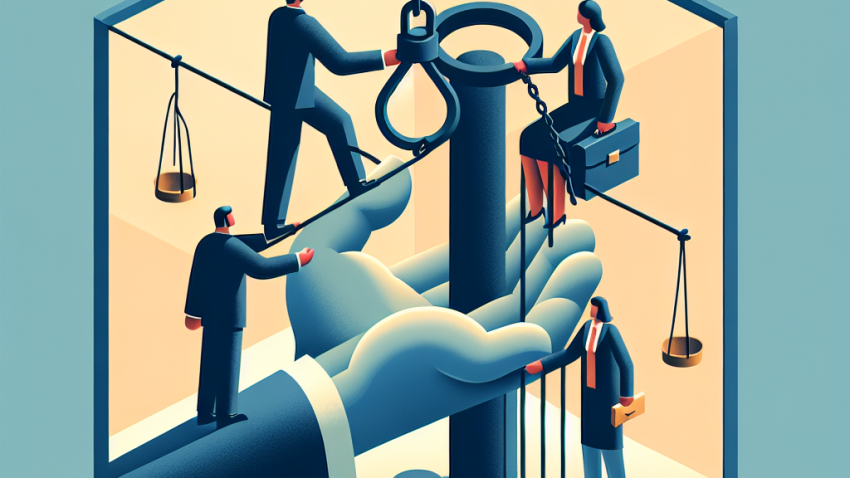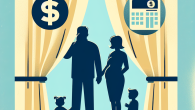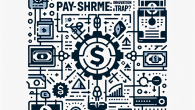
Debt Relief Orders Explained: Lifeline or Bureaucratic Nightmare?
The Fine Print That Bites: How Hidden Fees Are Draining Your Wallet and What You Can Do
Picture this: you’re reviewing your credit card statement, sipping your third cup of lukewarm coffee for the day, when you notice a mysterious $7.95 charge labeled “Convenience Fee.” Wait—what convenience? You paid online, did everything yourself, and now they’re charging you extra for not using a live agent? Welcome to the not-so-wonderful world of hidden fees—the silent wallet-drainers that sneak into your financial life like uninvited guests at a dinner party.
I’m Eleanor “Ellie” Cartwright, your watchdog in heels, and today, we’re lifting the veil off deceptive charges that banks, lenders, telecom companies, and streaming services hope you’ll never notice.
What Are Hidden Fees?
Hidden fees are undisclosed or inadequately disclosed charges added to the cost of a product or service after the initial price is presented. These fees are the shady fine print nobody reads because, let’s be honest, those terms and conditions could double as bedtime stories for insomniacs.
These sneaky charges can be found across several industries, including:
- Banking and credit cards
- Travel (airlines, hotels, car rentals)
- Telecommunications and streaming subscriptions
- Utilities and energy services
Examples of Hidden Fees
- Resort Fees: Charged by hotels for amenities like pool towels and printing boarding passes, even if you don’t use them.
- Paper Statement Fees: Banks charge just to send you your own transaction summary. Trees and your budget both cry.
- Early Termination Fees: Want to cancel a service? That’ll be $200, thank you very much.
- Service Convenience Fees: For the convenience of you doing the work and paying digitally, ironically.
These aren’t inconveniences—they’re predatory practices disguised as industry standards. And they add up. According to a 2023 report from the Consumer Financial Protection Bureau (CFPB), hidden and junk fees cost Americans tens of billions of dollars annually.
Why Are Hidden Fees So Common?
Because they work. Plain and simple. Businesses advertise a low base price to lure you in, then slap on fees during the checkout or billing process. This practice exploits what behavioral economists call the “drip pricing” model—where costs are gradually added so you’re less likely to abandon the purchase.
On top of that, there’s a massive transparency gap. Most people never see these fees coming, and companies are counting on that. Cloaked in legal jargon buried in the T&C, these charges often go unchallenged.
How Hidden Fees Affect Consumers
This isn’t just about nickels and dimes. Hidden fees:
- Diminish financial trust: Consumers lose faith in businesses that play bait-and-switch games.
- Deter price comparison: It’s impossible to shop responsibly when the real cost is hidden behind a paywall of fine print.
- Impact vulnerable communities: Low-income households can’t absorb surprise charges as easily, exacerbating inequality.
For many, it’s not just frustrating—it’s financially destabilizing. Who has time in their day to spend 45 minutes on the phone arguing about a $4.99 “processing fee” that wasn’t mentioned?
What the Government Is Doing About It
Here’s where I stop waving my red pen in frustration and start pulling out my highlighter for hope.
The Biden-Harris Administration and agencies like the Consumer Financial Protection Bureau (CFPB) and the Federal Trade Commission (FTC) are addressing hidden fees head-on:
- Junk Fee Prevention Act (Proposed): Would require full price disclosure up front in items like event tickets, hotel bookings, and financial services.
- CFPB Crackdowns: Enforcing actions against banks and lenders for overdraft and non-sufficient fund (NSF) fees.
- FTC Rulemaking: Developing a rule to prohibit hidden fees in e-commerce and service subscriptions.
While these actions are promising, legislation can take time. In the meantime, you—the savvy consumer—need a strategy.
How You Can Fight Back
Grab your virtual magnifying glass. It’s time to become your own advocate:
1. Always Read the Fine Print
It’s boring, I get it. But that 45 seconds you spend scanning the terms of service might save you from a $25 recurring charge next month. Look especially for clauses about “additional costs,” “processing fees,” or “service charges.”
2. Compare Final Prices, Not Just Based Rates
Whether it’s airline tickets or online loans, stop after the “Fees and Taxes Included” step. That’s where the true damage reveals itself.
3. Call and Ask for Fee Waivers
No, really. You’d be stunned how effective a polite phone call can be. Especially with credit cards, banks, and subscriptions, a 5-minute call can unclog months of hidden fees. Use this script:
“Hi, I noticed a [fee type] on my account. It wasn’t disclosed clearly when I signed up. Could you help me waive this today?”
4. Use Government Resources & File Complaints
If you’ve encountered deceptive fees, report them. Agencies like the CFPB rely on consumer complaints to take enforcement action.
File a complaint here: https://www.consumerfinance.gov/complaint/
5. Support Transparent Brands
Vote with your wallet. Companies like Alliant Credit Union and T-Mobile are ditching junk fees and showcasing upfront pricing as a badge of consumer trust. Choose wisely, and reward transparency.
The Bottom Line
Hidden fees are more than just corporate annoyances; they’re part of a larger systemic issue that erodes consumer rights and financial literacy. But knowledge is power, and by understanding your rights, reading between the lines, and demanding transparency, you’re not just protecting your money—you’re forcing the system to change.
So the next time that $2.50 “processing surcharge” appears quietly on your bill, don’t just roll your eyes. Grab your phone. Challenge it. And channel your inner Ellie—because informed consumers don’t just survive the fine print; they rewrite it.
Need help navigating deceptive practices? Visit our About Us page to learn more about who we are and how we advocate for consumer fairness, or Contact Us directly with your story.









Leave a Reply